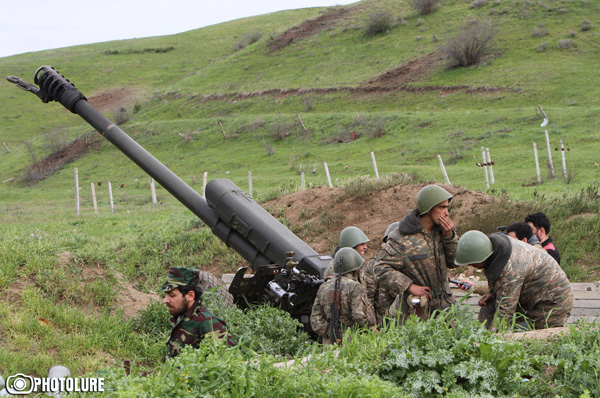In view of the ceaseless attempts of Azerbaijan to manipulate the UN Security Council resolutions on the Azerbaijan-Karabakh conflict, we consider it necessary to state the following:
The UN Security Council resolutions on the Azerbaijan-Karabakh conflict were adopted in 1993, during the active hostilities, and were aimed at putting an end to the war and to start political dialogue. This was due to the main requirement of all four resolutions – cessation of all hostilities and hostile acts.
The UN Security Council resolutions have never been implemented due to the position of Azerbaijan, which categorically refused to be bound by the obligations to cease the hostilities, while insisting on Artsakh’s unilateral concessions undermining the military security. Even after passing the resolutions, Azerbaijan had repeatedly violated the ceasefire agreements, which is explicitly stated in resolution 884, and rejected the proposals on the establishment or extension of ceasefire.
Moreover, Azerbaijan failed to comply not only with the most important requirement of the resolutions on an immediate ceasefire, cessation of all hostilities and hostile acts, but also with all the other ones: to refrain from any actions that obstruct the peaceful solution of the conflict (Resolutions 822, 853); to continue the negotiations through direct contacts between the parties (Resolution 853); to restore the economic, transport, and energy links in the region (Resolution 853); to ensure the unimpeded access for international humanitarian relief efforts (Resolutions 822, 853, 874).
Azerbaijan demonstrates the same selective approach to the “Adjusted timetable of urgent steps to implement Security Council Resolutions 822 and 853”, which was agreed upon and proposed to the parties by the OSCE Minsk Group. The basis of this proposal, supported by the UN Security Council Resolution 874, is the provision on the recognition of the leadership of Nagorno Karabakh as one of the three parties to the conflict.
The episode with the May 1993 appeal of the Italian Chairmanship of the CSCE Minsk Conference to the conflicting parties for confirming their readiness to implement resolution 822 adopted on April 30, 1993 is a characteristic example of Azerbaijan’s real and not declared attitude to the UN Security Council resolutions. Despite the fact that Azerbaijan was the initiator of passing this resolution, it left the request of the Italian Chairmanship unanswered.
Through all its actions, Baku demonstrated that it considered the UN Security Council resolutions not as a means of ending the war, but as an instrument for achieving a military advantage.
Azerbaijan’s sabotage of the resolutions devalued them to an extent that the UN Security Council ceased to adopt new resolutions, and the mediators were forced to search another political and legal basis for a ceasefire. It became the April 15, 1994 statement of the Council of the Heads of State of the Commonwealth of Independent States and the Bishkek Protocol signed by the Parliament Speakers of Nagorno Karabakh, Armenia and Azerbaijan on May 5-8, 1994, which ultimately paved the way for the May 12, 1994 Agreement on a complete ceasefire and cessation of military activities. It should be stressed that under this agreement, all the parties publicly confirmed the coordinates for the line of ceasefire, thus defining the status quo post bellum. The violation of the line of ceasefire by Azerbaijan during the April 2016 aggression became a serious challenge for the entire conflict settlement process. Restoration of the line’s configuration as of May 1994 is an indispensable factor for maintaining peace in the region and an effective deterrent.
Azerbaijan’s attempts to present the UN Security Council resolutions, which Azerbaijan itself violated, as having binding force in the settlement of the Azerbaijan-Karabakh conflict have no legal reasoning and pursue hidden goals that run counter to the negotiation process.
Neither before nor after passing the resolutions, the UN Security Council considered the issue of political settlement of the Azerbaijan-Karabakh conflict, refraining from direct mediation initiatives in support of the CSCE / OSCE efforts, which is directly stated in the resolutions. This is also indicated by the fact that after signing the May 12, 1994 trilateral termless Agreement on a full ceasefire and cessation of hostilities, the UN Security Council no longer returned to the issue of the Azerbaijan-Karabakh conflict.
It should also be taken into account that according to the UN Charter, the Security Council can make both decisions and recommendations. When considering issues related to the legal force of the UN Security Council documents, the International Court of Justice concluded that the decisions of the Security Council are binding for states, while the recommendations are not. All the resolutions of the UN Security Council adopted with regard to the Azerbaijan-Karabakh conflict are recommendatory and not binding.
If Azerbaijan really had considered the resolutions of the UN Security Council as binding and referred to them, proceeding from the interests of achieving final peace, then it would have implemented the requirements and appeals of the resolutions, which mostly refer to Baku.
On the contrary, the targeted policy of the Azerbaijani authorities on destabilizing the situation on the Line of Contact between the armed forces of the Republic of Artsakh and Azerbaijan, Baku’s refusal to implement confidence-building measures and to reduce tensions, its propaganda of xenophobia and hatred towards Armenians, refusal to negotiate directly with Artsakh, as well as its efforts to isolate Artsakh by preventing the visits of representatives of specialized UN agencies to the Republic run counter to the letter and spirit of the UN Security Council resolutions.
Against the background of the incessant threats by the Azerbaijani authorities and, in particular, the statements by the military leadership that the order for the offensive will be given “at exactly the right moment, taking into account the international political situation”, it becomes obvious that Azerbaijan makes another attempt to manipulate the UN Security Council resolutions in the interests of war, not peace.




















































